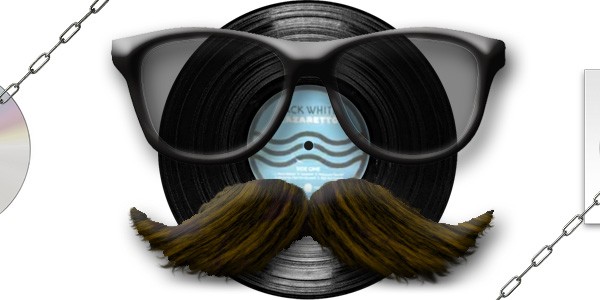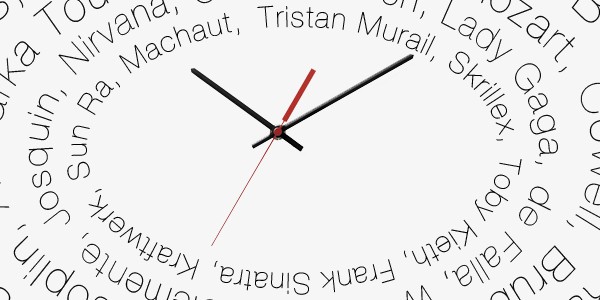The video for DJ Snake and Lil Jon’s “Turn Down for What?” is 2014’s answer to a 1986 call to action: The Beastie Boy’s “(You Gotta) Fight for your Right (to Party)”. The 28-year gap between the two tracks marks a generational divide in ideology that, at the risk of sounding completely ridiculous, warrants a bit of extra thought. First, to the videos:
While at first blush a comparison of the sexually suggestive behavior of whipped cream pie-throwing (Beastie Boys) and the overtness of involuntary dick-flexing (DJ Snake and Lil Jon) seems in order, I think a difference emerges on a more fundamental level. Prior to any consideration of sexuality, censorship, or even good-taste in one video versus the other, we must confront a slight but significant inversion regarding the notion of pleasure or enjoyment itself. Where the Beastie Boys assert (against the uptight moralist backbone of conservatism) that pleasure can be a valid pursuit in its own right, DJ Snake and Lil Jon treat the normalized pursuit of pleasure as the only moral code that remains.
The Beastie Boys anthem for rebellious youth is slyly satirical, when considered in relation to non-conformity at large. In their 2004 book, Nation of Rebels, Joseph Heath and Andrew Potter examined how non-conformist behavior, rather than undermining the economic viability of mainstream culture, actually functions as the fullest expression of the distributed information network that fuels the economics of supply and demand. Non-conformity establishes new markets for new products. We see this all the time; the rejection of mainstream options simply provides a new set of options; dependent on its ability to persuade, a sub-culture asserting its difference will grow to constitute the mainstream. Heath and Potter provide a litany of examples: DIY home improvement projects undertaken to avoid the cost of paying skilled professionals yield more business for Home Depot or Lowes; railing against industrialized agriculture practices leads to a booming economy for premium “organic” food products, many of which are being mass-produced by the same companies responsible for the ill-effects of industrialized food production that incited us to find alternatives in the first place. Resources and industries may shift, but the black sheep ends up fueling economic growth rather than tempering capitalism’s tendency toward labor exploitation and generalized commodity production. Non-conformity is presented as a fight against some vague notion of the “system” or the “man”, but usually ends up establishing new avenues for commodifying pleasure. Hence, the Beastie Boys’ little codicil: “(to party)”.
Heath and Potter suggest that, against all the existential angst and anti-corporate sloganeering of Nirvana in the early 90s, the Beastie Boy’s had already called everyone’s bluff: Yes! Fight for your right to do things different… (but don’t be under any illusion that you’re changing the system. Its all about YOU, the party you’re throwing for yourself, the attention you’re drawing to a NEW brand, the pleasure you derive from being a special little snowflake). The Beastie Boys song tells you that if you must fight for something, then you might as well call it like it is and fight for your right to enjoy, even to excess. Your own pleasure is all you can control and, therefore, the pursuit of pleasure becomes your duty.
Fast-forward nearly three decades and we arrive at our contemporary moment, where we are repeatedly asked by Lil Jon: “Turn down for what?” We fought for our right to party, in whatever way we saw fit… and won. So now we keep up-ing the ante— pursuing new avenues for self-gratification. We no longer reserve a sense of enjoyment for the odd rager every once in a while. We seek out (and are sold) new ways to maximally enjoy all aspects of our everyday lives. Furthermore, we now attempt to promote our enjoyment of the mundanities of life and enjoy vicariously the lives of all of the people we know! (see Facebook). This notion can even be extended to include an expectation of enjoyment regarding our investment in the lives of the rich and famous, such as when Beyoncé and Jay-Z expect us to enjoy their enjoyment of standing in front of the Mona Lisa.
Or when Obama poses for a selfie at Nelson Mandela’s memorial service.

Sure, we’ve all since been told that the South African tradition is to celebrate the person’s life rather than somberly mourn his/her death. But as three non-South-African Heads-of-State squeeze into the frame and smile as though they’re besties attending a sporting event at their alma mater, the mere semblance of enjoyment (regardless of each’s true individual feelings) reveals a necessity to, at the very least, act as if enjoyment persists— less one reveal a state of abject confusion.
In the absence of any meaningful alternative to perpetual enjoyment pursued in direct proportion to one’s purchasing power, it’s full-steam ahead. Today, partying harder means enjoying your Monday morning as much as your Friday night: enjoying your job at the cool tech company with ping-pong tables in the conference room, a quick beach volleyball match on your lunch break, and the ubiquitous keggerator for when you work after happy hour, because you need to cut loose to stay so productive; enjoying your under-paid position in a new startup company that uses contemporary design solutions, local building materials, and local workers to build more efficient infrastructure in developing countries, because you’re saving the world and still able to live comfortably.
Perhaps some skepticism is in order. A roadmap for identifying and doing true good in the world has not yet been written. But I suspect that following any such roadmap would probably require some drastic upheaval, arduous work, and a severe LACK of enjoyment. While I don’t have any answers here, it is simply clear that in the final days of 2014 we no longer have to fight for our right to enjoy. Instead, we are faced with the question of what remains in the absence of enjoyment. Turn down for what? It’s a rhetorical question because the answer is obvious: nothing. There is no alternative at the moment. But that not all of us are able to enjoy the excesses of liberal consumerism reflects both our economic failing and our quiet rebellion.
© 2014, Sean Peuquet. All rights reserved.








